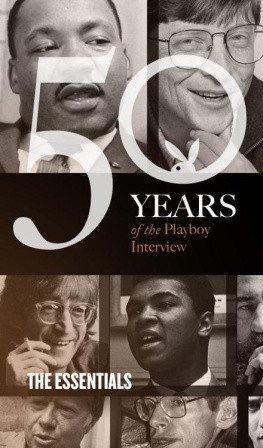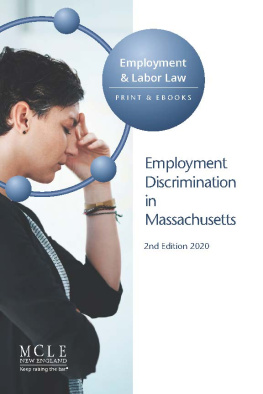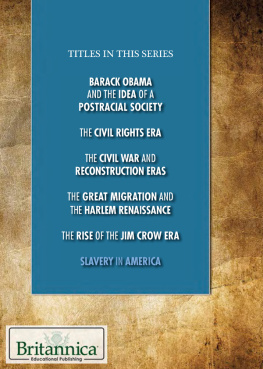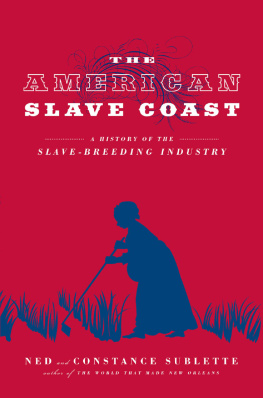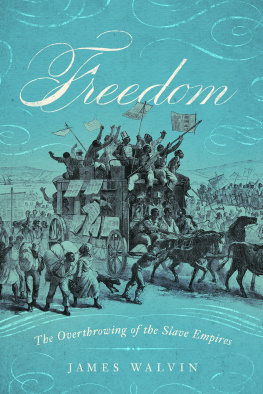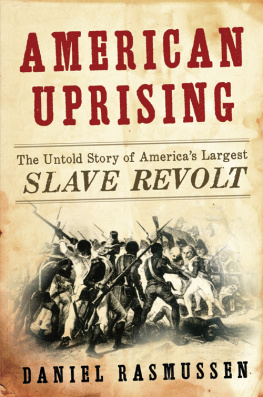THROUGH THE
EYES OF A SLAVE
WRITTEN ACCOUNTS
OF AMERICAN SLAVERY
By
VARIOUS
Copyright 2020 Read & Co. History
This edition is published by Read & Co. History,
an imprint of Read & Co.
This book is copyright and may not be reproduced or copied in any
way without the express permission of the publisher in writing.
British Library Cataloguing-in-Publication Data
A catalogue record for this book is available
from the British Library.
Read & Co. is part of Read Books Ltd.
For more information visit
www.readandcobooks.co.uk
Contents
NARRATIVE OF THE LIFE
OF FREDERICK DOUGLASS
ON BEING BROUGHT FROM
AFRICA TO AMERICA
'Twas mercy brought me from my Pagan land,
Taught my benighted soul to understand
That there's a God, that there's a Saviour too:
Once I redemption neither sought nor knew.
Some view our sable race with scornful eye,
"Their colour is a diabolic die."
Remember, Christians, Negros, black as Cain,
May be refin'd, and join th' angelic train.
Phil lis Wheatley
CHAPTER I
LIFE ON A COTTON PLANTATION
BIRTHSOLD IN A RICHMOND SLAVE PEN
I was born in Virginia, in 1832, near Charlottesville, in the beautiful valley of the Rivanna river. My father was a white man and my mother a negress, the slave of one John Martin. I was a mere child, probably not more than six years of age, as I remember, when my mother, two brothers and myself were sold to Dr. Louis, a practicing physician in the village of Scottsville. We remained with him about five years, when he died, and, in the settlement of his estate, I was sold to one Washington Fitzpatrick, a merchant of the village. He kept me a short time when he took me to Richmond, by way of canal-boat, expecting to sell me; but as the market was dull, he brought me back and kept me some three months longer, when he told me he had hired me out to work on a canal-boat running to Richmond, and to go to my mother and get my clothes ready to start on the trip. I went to her as directed, and, when she had made ready my bundle, she bade me good-by with tears in her eyes, saying: "My son, be a good boy; be polite to every one, and always behave yourself properly." It was sad to her to part with me, though she did not know that she was never to see me again, for my master had said nothing to her regarding his purpose and she only thought, as I did, that I was hired to work on the canal-boat, and that she should see me occasionally. But alas! We never met again. I can see her form still as when she bade me good-bye. That parting I can never forget. I ran off from her as quickly as I could after her parting words, for I did not want her to see me crying. I went to my master at the store, and he again told me that he had hired me to work on the canal-boat, and to go aboard immediately. Of the boat and the trip and the scenes along the route I remember littleI only thought of my mother and my leaving her.
When we arrived at Richmond, George Pullan, a "nigger-trader," as he was called, came to the boat and began to question me, asking me first if I could remember having had the chickenpox, measles or whooping-cough. I answered, yes. Then he asked me if I did not want to take a little walk with him. I said, no. "Well," said he, "you have got to go. Your master sent you down here to be sold, and told me to come and get you and take you to the trader's yard, ready to be sold." I saw that to hesitate was useless; so I at once obeyed h im and went.
A SLAVE MARKET
The trader's establishment consisted of an office, a large show-room and a yard in the rear enclosed with a wall of brick fifteen feet high. The principal men of the establishment were the proprietor and the foreman. When slaves were to be exhibited for sale, the foreman was called to the office by means of a bell, and an order given him to bring into the show-room all the slaves in the establishment. This was the work of but a few minutes, and the women were placed in a row on one side of the room and the men on the other. Persons desirous of purchasing them passed up and down between the lines looking the poor creatures over, and questioning them in about the following manner: "What can you do?" "Are you a good cook? seamstress? dairymaid?"this to the women, while the men would be questioned as to their line of work: "Can you plow? Are you a blacksmith? Have you ever cared for horses? Can you pick cotton rapidly?" Sometimes the slave would be required to open his mouth that the purchaser might examine the teeth and form some opinion as to his age and physical soundness; and if it was suspected that a slave had been beaten a good deal he would be required to step into another room and undress. If the person desiring to buy found the slave badly scarred by the common usage of whipping, he would say at once to the foreman; "Why! this slave is not worth much, he is all scarred up. No, I don't want him; bring me in another to look at." Slaves without scars from whipping and looking well physically always sold readily. They were never left long in the yard. It was expected that all the slaves in the yard for sale would be neatly dressed and clean before being brought into the show-room. It was the foreman's business to see that each one was presentable.
SLAVE WHIPPING AS A BUSINESS
Whipping was done at these markets, or trader's yards, all the time. People who lived in the city of Richmond would send their slaves here for punishment. When any one wanted a slave whipped he would send a note to that effect with the servant to the trader. Any petty offense on the part of a slave was sufficient to subject the offender to this brutal treatment. Owners who affected culture and refinement preferred to send a servant to the yard for punishment to inflicting it themselves. It saved them trouble, they said, and possibly a slight wear and tear of feeling. For this service the owner was charged a certain sum for each slave, and the earnings of the traders from this source formed a very large part of the profits of his business. The yard I was in had a regular whipping post to which they tied the slave, and gave him "nine-and-thirty," as it was called, meaning thirty-nine lashes as hard as they could lay it on. Men were stripped of their shirts in preparation for the whipping, and women had to take off their dresses from the shoulders to the waist. These whippings were not so severe as when the slaves were stripped entirely of their clothes, as was generally the case on the plantations where slaves were owned by the dozen. I saw many cases of whipping while I was in the yard. Sometimes I was so frightened that I trembled violently, for I had never seen anything lik e it before.
SOLD IN THE MARKET
I was only in the yard a short time before I was bought by one George Reid who lived in Richmond. He had no wife, but an old lady kept house for him and his three sons. At this time he had a place in the postoffice, but soon after I came there he lost it. He then moved into the country upon a farm of about one thousand acres, enclosed by a cedar hedge. The house was a plain frame structure upon a stone basement and contained four rooms. It was surrounded with shrubbery, and was a pleasant country seat. But I did not like it here. I grieved continually about my mother. It came to me, more and more plainly, that I would never see her again. Young and lonely as I was, I could not help crying, oftentimes for hours together. It was hard to get used to being away from my mother. I remember well "Aunt Sylvia," who was the cook in the Reid household. She was very kind to me and always spoke consolingly to me, especially if I had been blue, and had had one of my fits of crying. At these times she would always bake me an ash cake for supper, saying to me; "My child, don't cry; 'Aunt Sylvia' will look after you." This ash cake was made of corn meal and water, a little salt to make it palatable, and was baked by putting it between cabbage leaves and covering it with hot ashes. A sweeter or more delicious cake one could not desire, and it was common upon the tables of all the Virginia farmers. I always considered it a great treat to get one of these cakes from "A unt Sylvia."





